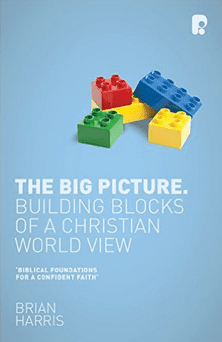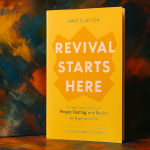 Modern theology is theology done in the context of modernity, which means, in the context of what happened to thinking and culture as a result of the Enlightenment. Modern theology is often a code expression for “liberal” theology, and many ways that might be right. But Roger Olson, in his big book The Journey of Modern Theology: From Reconstruction to Deconstruction, a massively updated book he co-wrote with Stanley Grenz (called Twentieth Century Theology, 1992), spends less time thinking about “liberal” and far more about “modern.”
Modern theology is theology done in the context of modernity, which means, in the context of what happened to thinking and culture as a result of the Enlightenment. Modern theology is often a code expression for “liberal” theology, and many ways that might be right. But Roger Olson, in his big book The Journey of Modern Theology: From Reconstruction to Deconstruction, a massively updated book he co-wrote with Stanley Grenz (called Twentieth Century Theology, 1992), spends less time thinking about “liberal” and far more about “modern.”
To get what he’s doing we have to understand what “modernity” is, what one famous American thinker called the “acids” of modernity? Olson highlights seven features of modernity, each of which has stronger and weaker forms, so that one must have nuances all over the place if one wishes to be intelligent about this kind of subject. I have spent some of the last year reading about liberal theology, and I see Roger’s book as the best sketch of the big picture we have available today.
So, what is modernity?
1. Rationalism: the omnicompetence of autonomous human reason.
2. Skepticism: an anti-posture toward tradition, especially Christian religious traditions, as beliefs not based on reason.
3. Scientism/naturalism: a belief in the scientific method, on the indubitable realities of the empirical world in contrast to beliefs, and in a worldview that is shaped by naturalism.
4. Secularism: life can be lived best without God and religion. Religion belongs in the private, personal sphere of life.
5. Historicism: everything in history is causally related to other historical events.
6. Optimism: modernity, when lived well, leads to inevitable progress in overcoming misery.
7. Anthropocentrism: humans are at the center of knowing and the center of the universe.
(8.) These elements, when pursued, enable us to pursue progress in society and culture.
Many major modernistic voices — e.g., Voltaire, Thomas Jefferson — have contended that modernity’s march would trod religion, especially Christianity, under foot and it will disappear but Christianity, paradoxically, has flourished in a worldview of modernity.
Modern theology traces how various theologians have accommodated to modernity’s central features. Some have capitulated; many have reacted under the control of modernity. So there is a spectrum from capitulation and subversion all the way to robust reframings of the tradition in more modernistic categories (many would say that is what American Protestant fundamentalism was/is).
Where do you place “progressive Christianity” in this discussion?
Join me in purchasing this book and reading it over the next few weeks.















